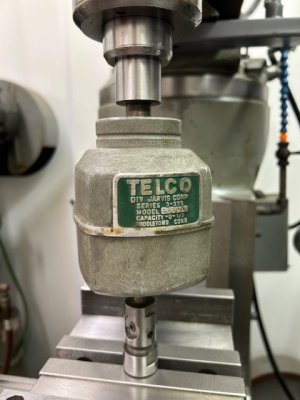Besides some label calling them machine taps (which can be very unreliable these days), are they always spiral flute types?
With hand tap, I have to constantly backing off. I am sure those taps putting in a tapping head would break quickly.
With hand tap, I have to constantly backing off. I am sure those taps putting in a tapping head would break quickly.



